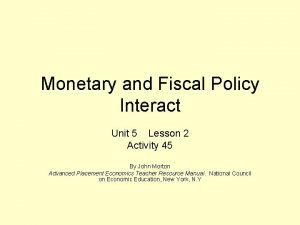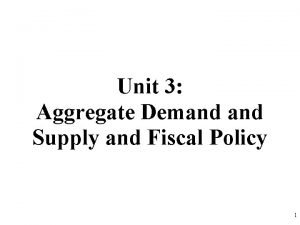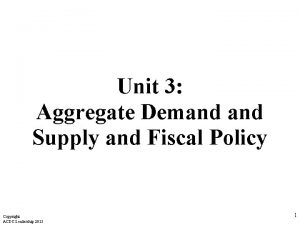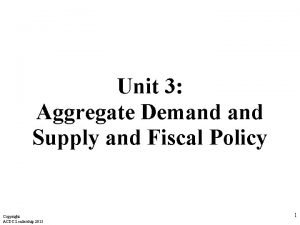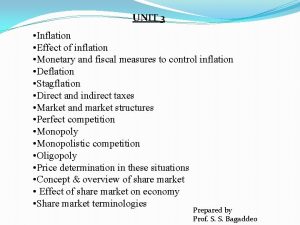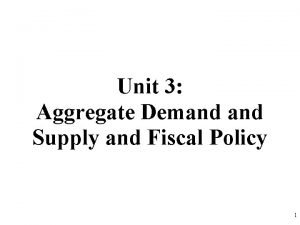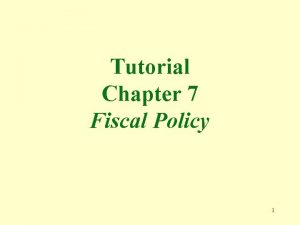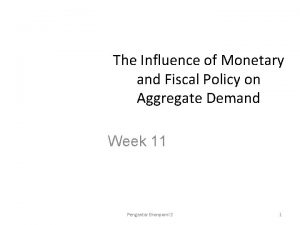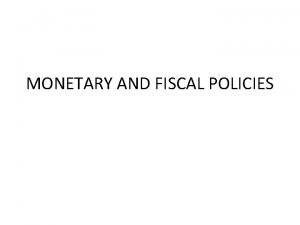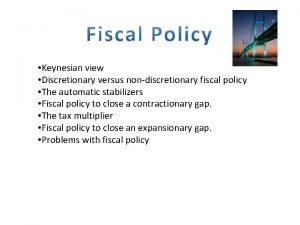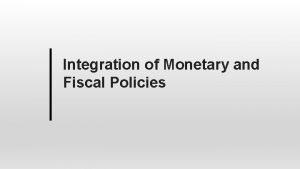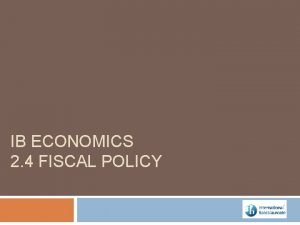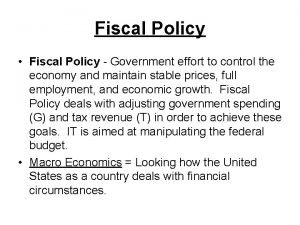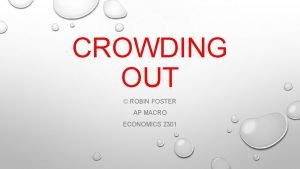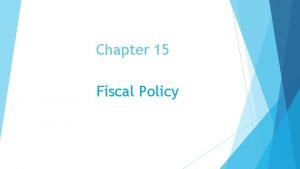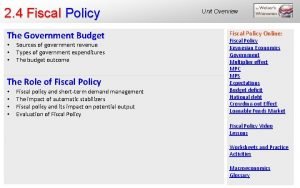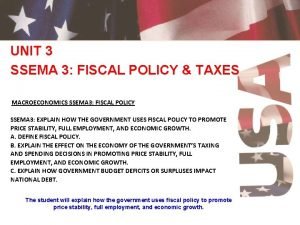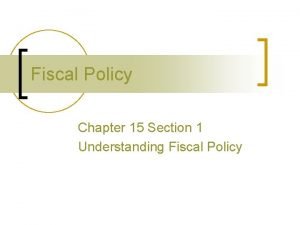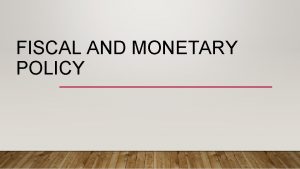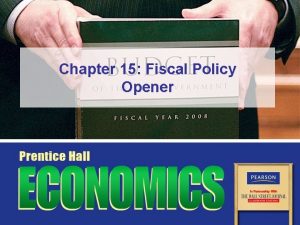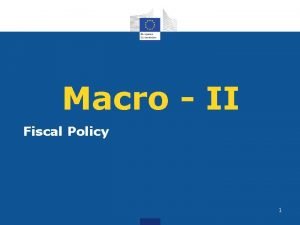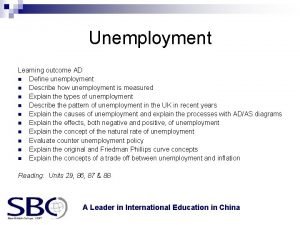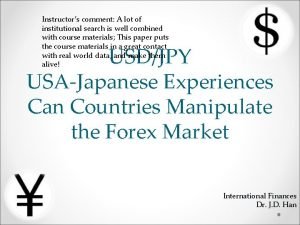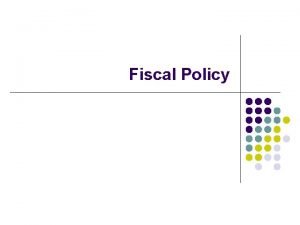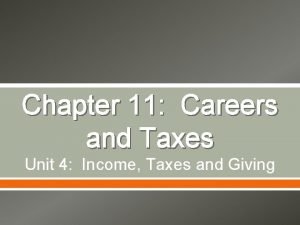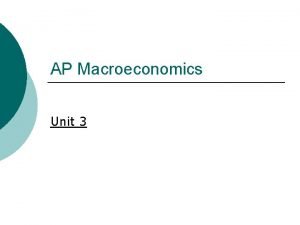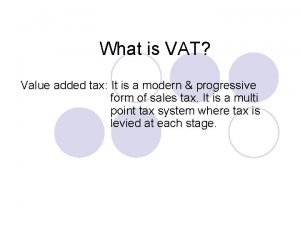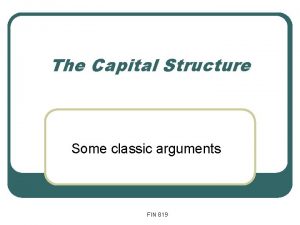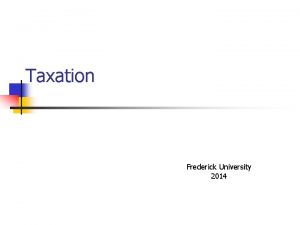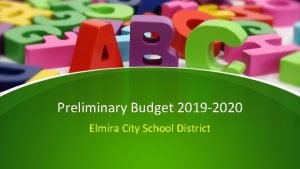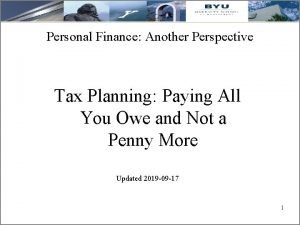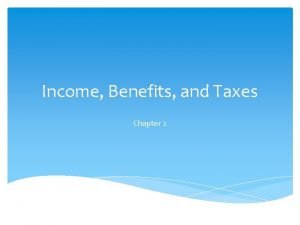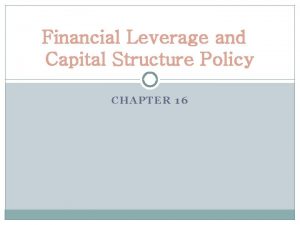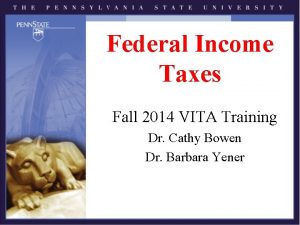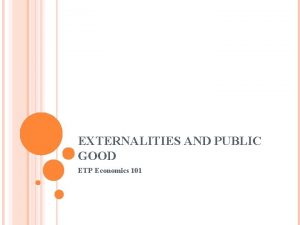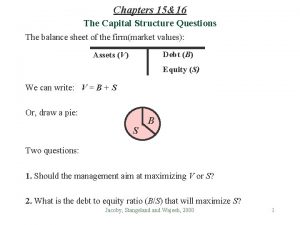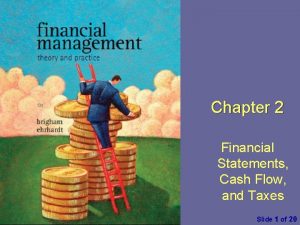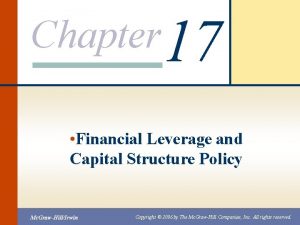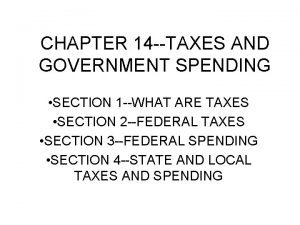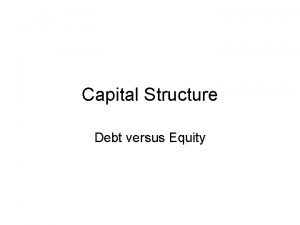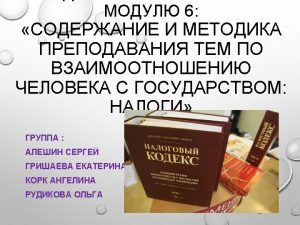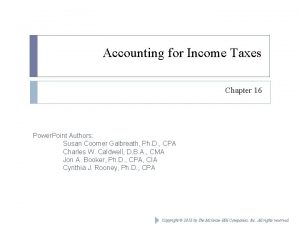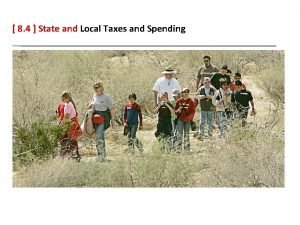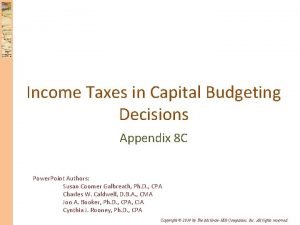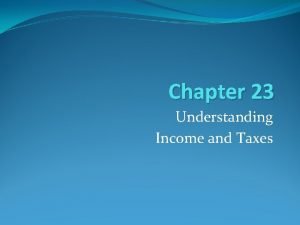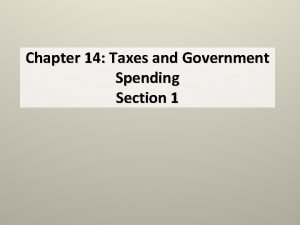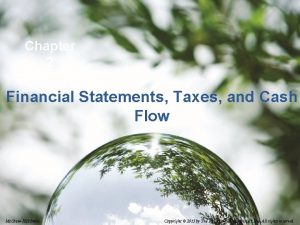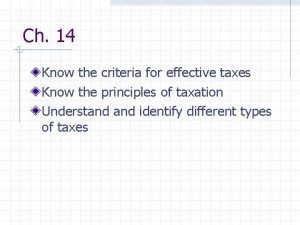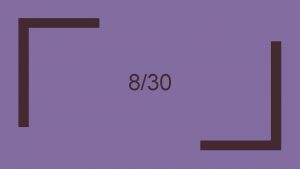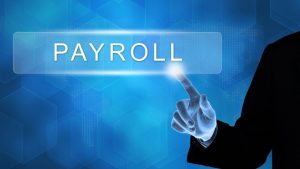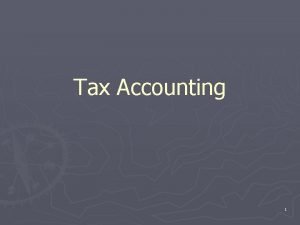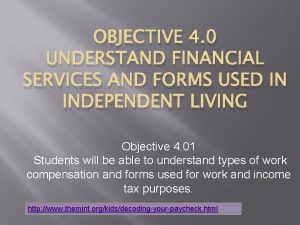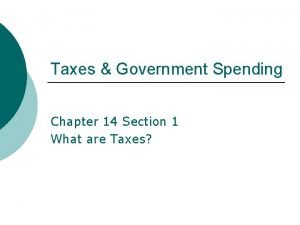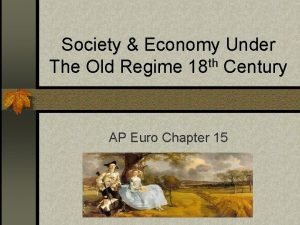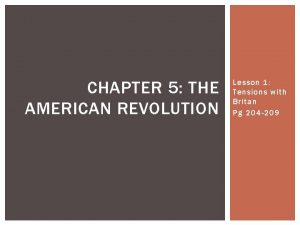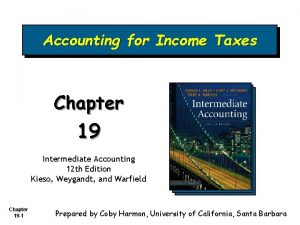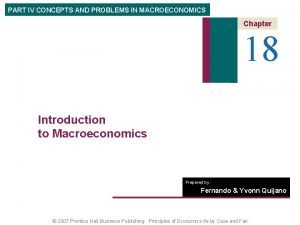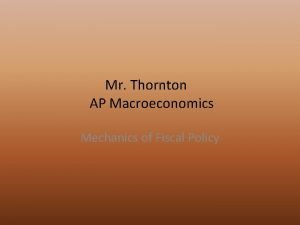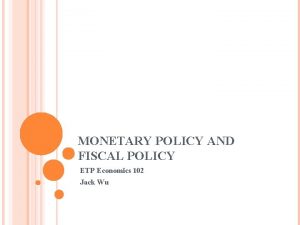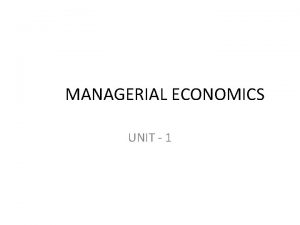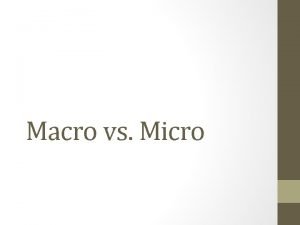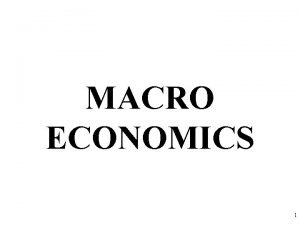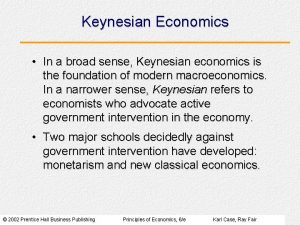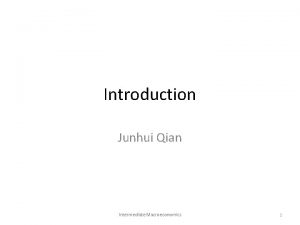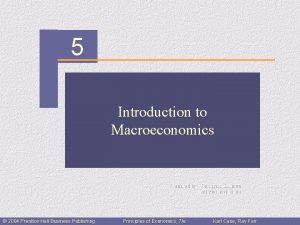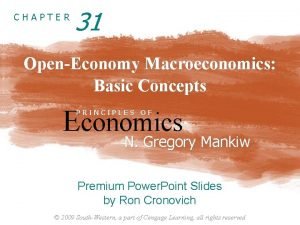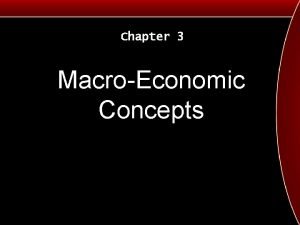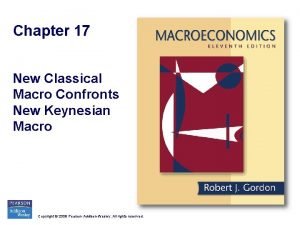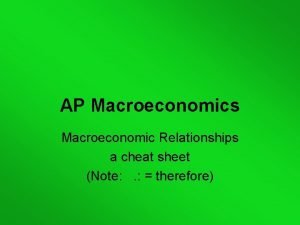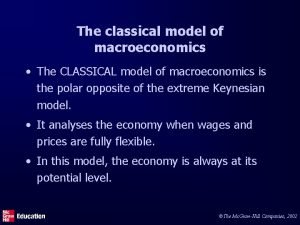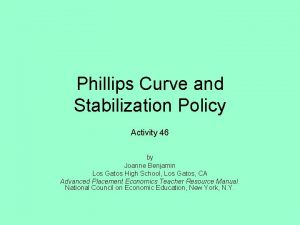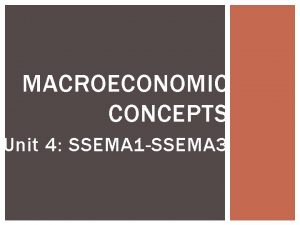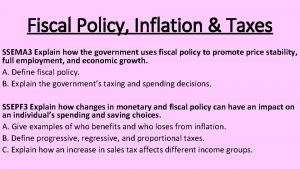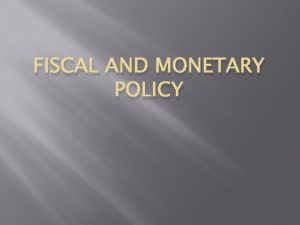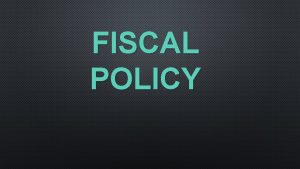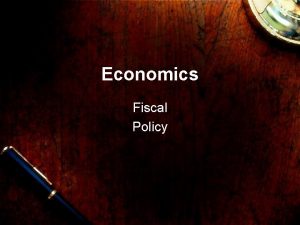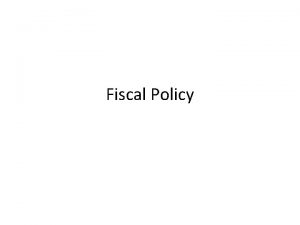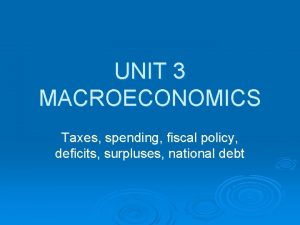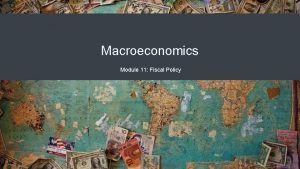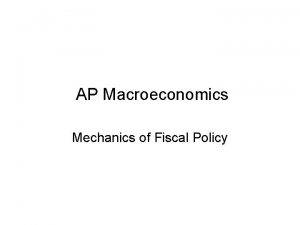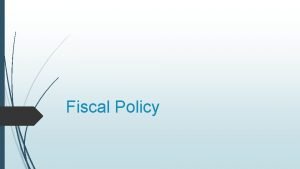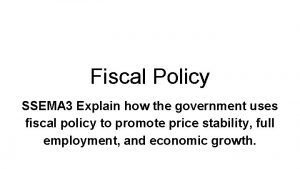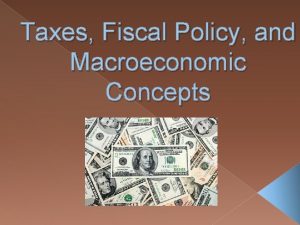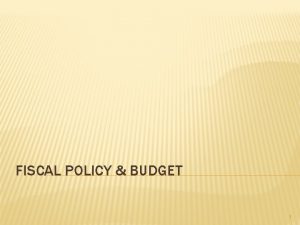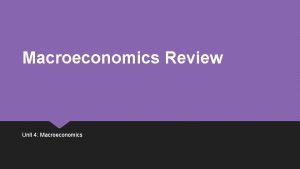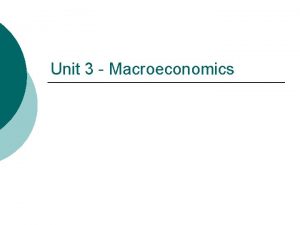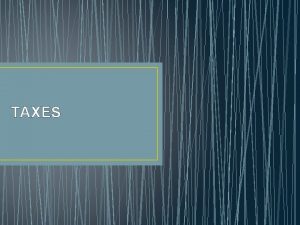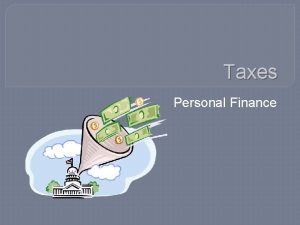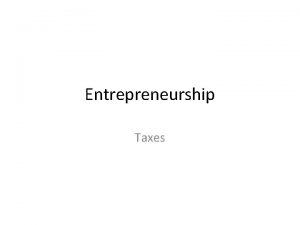UNIT 3 SSEMA 3 FISCAL POLICY TAXES MACROECONOMICS































































































- Slides: 95

UNIT 3 SSEMA 3: FISCAL POLICY & TAXES MACROECONOMICS SSEMA 3: FISCAL POLICY SSEMA 3: EXPLAIN HOW THE GOVERNMENT USES FISCAL POLICY TO PROMOTE PRICE STABILITY, FULL EMPLOYMENT, AND ECONOMIC GROWTH. A. DEFINE FISCAL POLICY. B. EXPLAIN THE EFFECT ON THE ECONOMY OF THE GOVERNMENT’S TAXING AND SPENDING DECISIONS IN PROMOTING PRICE STABILITY, FULL EMPLOYMENT, AND ECONOMIC GROWTH. C. EXPLAIN HOW GOVERNMENT BUDGET DEFICITS OR SURPLUSES IMPACT NATIONAL DEBT. The student will explain how the government uses fiscal policy to promote price stability, full employment, and economic growth.

Tax Quotes • Benjamin Franklin said, "The only things certain in life are death and taxes. " • "The hardest thing in the world to understand is the income tax. " -- attributed to Albert Einstein • "Give to Caesar what is Caesar's, and to God what is God's. “ Jesus • "People who complain about taxes can be divided into two classes: men and women. " – Unknown The student will explain how the government uses fiscal policy to promote price stability, full employment, and economic growth.

Taxes and Government Spending What are Taxes? • Tax – a required payment to a local, state, or national government The student will explain how the government uses fiscal policy to promote price stability, full employment, and economic growth.

The student will explain how the government uses fiscal policy to promote price stability, full employment, and economic growth.

Tax Structures 1. Proportional Tax – % of income taxes remains the same for all income levels (Flat tax) 2. Progressive Tax – % of income paid in taxes increases as income increases (Federal Income Tax) 3. Regressive Tax - % of income paid in taxes decreases as income increases (Sales Tax) The student will explain how the government uses fiscal policy to promote price stability, full employment, and economic growth.

Type of Tax Proportional Progressive Regressive Income of $10, 000 Income of $150, 000 Summary 10% flat tax = $1, 000 • 10% of income 10% flat tax = $15, 000 • 10% of income As income goes up, the percent of income taxed stays the same 10% income tax = $1, 000 • 10% of income 25% income tax = $37, 500 • 25% of income The more you make, the more they take. 6% State Sales Tax $5, 000 in consumer goods = $300 • . 03 or 3% of income 6% State Sales Tax $5, 000 in consumer goods = $300 • . 002 or. 2 % of income The more you make the less the tax affects you. The student will explain how the government uses fiscal policy to promote price stability, full employment, and economic growth.

Who Bears the Burden? Who bears the burden of each? 1. Proportional – everyone pays the same percentage • Everyone bears the burden 2. Progressive – “more you make, more they take” • Rich bear the burden. 3. Regressive – more you make, less they take • Poor bear the burden The student will explain how the government uses fiscal policy to

Regressive Tax A regressive tax is a tax where low income earners bear the burden. • Social Security tax is an example. • 6. 2% on wages up to a maximum wage of $118, 500. • Person A makes $30, 000 • $30, 000*. 062 = $1, 860 in taxes • $1, 860/$30, 000 = 6. 2% of wages. • Person B makes $200, 000 • $118, 500*. 062 = $7, 347 in taxes • $7, 347/$200, 000 = 3. 67% of wages. • Person C makes $500, 000 • $118, 500*. 062 = $7, 347 in taxes • $7, 347/$500, 000 = 1. 47% of wages. • Since the higher income earners pay the smallest percentage of their income in tax, it is a regressive tax. The student will explain how the government uses fiscal policy to promote price stability, full employment, and economic growth.

Individual Income Taxes $934. 00 The student will explain how the government uses fiscal policy to promote price stability, full employment, and economic growth.

Individual Income Taxes • Tax Withholding – taxes are taken out of your pay before you receive it; ensures payment to the government The student will explain how the government uses fiscal policy to

Stossel Taxes http: //www. youtube. com/wat ch? v=_yad 01 i. Ov. I 4&list=PL 6 C 78 E 46 B 824 BFF 89&index=3& feature=plpp_video The student will explain how the government uses fiscal policy to promote price stability, full employment, and economic growth.

The student will explain how the government uses fiscal policy to promote price stability, full employment, and economic growth.

Tax Rates Explained • https: //www. youtub e. com/watch? v=2 R U 6 k. Hup. Y 50 The student will explain how the government uses fiscal policy to promote price stability, full employment, and economic growth.

Obama Videos • Income Inequality • Joe the Plumber • You Didn’t Build That The student will explain how the government uses fiscal policy to promote price stability, full employment, and economic growth.

• What is a regressive tax? As income goes up, % of tax goes down • What is an example of a regressive tax in the real world? Sales • Based on the above table, if each person paid $1, 000 worth of taxes, who is paying the highest percentage rate of taxes? Low income • Based on the above table, if each person paid $1, 000 worth of taxes, who is paying the lowest percentage rate of taxes? High income • Therefore, who is bearing the burden of the regressive taxes in our economy? Low income • Cory works at a fast-food restaurant. He makes $10, 000 a year. How much would he take home after paying $1, 000 regressive income tax? $9, 000 • What percentage of his income would be paid in taxes? 10% • How much would his boss, who makes $25, 000, take home? $24, 000 • What percentage of his boss’s income would be paid in taxes? 4% • Who is paying more, percentage-wise in taxes? Cory The student will explain how the government uses fiscal policy to promote price stability, full employment, and economic growth.

Suppose the state of Georgia mandates a fee for driver’s licenses of $25. Fill in the below table based on 2 people with different incomes. Income Amount of Tax Percent of income Paid in Tax $5, 000 $25 . 5% $50, 000 $25 . 05% Who is bearing the burden of this tax? Low income What alternative could the state use to make this tax system fairer? Charge high income earners a higher amount of tax for the driver’s licenses The student will explain how the government uses fiscal policy to promote price stability, full employment, and economic growth.

Income x percent of income paid in tax = amount of tax Example: $15, 000 x. 10 (10%) = $1, 500 Proportional taxes, 10% on all income Amount of Tax Percent of income Paid in Tax Income $5, 000 $10, 000 $25, 000 $50, 000 $100, 000 $1, 000 500 1, 000 2, 500 10% 5, 000 100, 000 10% 10% 10% What is a proportional tax? How do a proportional tax and a progressive tax differ? The student will explain how the government uses fiscal policy to promote price stability, full employment, and economic growth.

Taxes in a market economy • With the money Erin earned baby-sitting, she bought a book priced at $5. 95. She paid a tax of $. 36 on the book. What type of tax did she pay? Sales • Mr. Presutti paid taxes on his salary of $65, 000. What type of tax did he pay? Income • Jonah paid $3, 000 at the end of the year on his home. What type of tax did he pay? Property The student will explain how the government uses fiscal policy to promote price stability, full employment, and economic growth.

The student will explain how the government uses fiscal policy to promote price stability, full employment, and economic growth.

Who Fixes the Economy? The student will explain how the government uses fiscal policy to promote price stability, full employment, and economic growth.

Monetary and Fiscal Policy Making to Affect the Macroeconomy Monetary Policy Fiscal Policy The student will explain how the government uses fiscal policy to promote price stability, full employment, and economic growth.

Federal Government • How does the Federal Government fix problems? – Fiscal Policy • What are the Federal Government’s tools of fiscal policy? 1. Taxation 2. Government Spending The student will explain how the government uses fiscal policy to promote price stability, full employment, and economic growth.

Fiscal Policy and The Federal Budget • Fiscal Policy – Government spending/tax policies that influence the economy. – The goal is to create policies that will stabilize the economy • Main players : 1. Congress 2. The President The student will explain how the government uses fiscal policy to promote price stability, full employment, and economic growth.

How Fiscal Policy Influences the Economy – Expansionary Fiscal Policy (grow the economy) 1. Government spends more 2. Taxes Less; gives consumers/firms more money to spend The student will explain how the government uses fiscal policy to promote price stability, full employment, and economic growth.

How Fiscal Policy Influences the Economy – Contractionary Fiscal Policy (slow the economy) • Government spends less • Higher tax-rates will give consumers/firms less money The student will explain how the government uses fiscal policy to promote price stability, full employment, and economic growth.

• Border Wall • http: //www. youtube. com/watch? v=9 WAZJFmp. Z 0&list=PL 6 C 78 E 46 B 824 BFF 89&index=24 The student will explain how the government uses fiscal policy to promote price stability, full employment, and economic growth.

The student will explain how the government uses fiscal policy to promote price stability, full employment, and economic growth.

The student will explain how the government uses fiscal policy to promote price stability, full employment, and economic growth.

The student will explain how the government uses fiscal policy to promote price stability, full employment, and economic growth.

Budget Deficits and the National Debt • Balanced budget – money going into the U. S. Treasury is the same amount of money going out – Revenue = Spending – The last balanced budget occurred in 1997 under President Bill Clinton The student will explain how the government uses fiscal policy to promote price stability, full employment, and economic growth.

Balancing the Budget • Budget Surplus – occurs when the government takes in more than it spends – Revenue > Spending • Budget Deficit – occurs when the government spends more than it takes in – Revenue < Spending The student will explain how the government uses fiscal policy to promote price stability, full employment, and economic growth.

Dealing with a Budget Deficit • Reduce Spending – cut spending on government programs – Increase Taxes – Borrow money – government borrows money • China owns 1 trillion dollars of US debt The student will explain how the government uses fiscal policy to promote price stability, full employment, and economic growth.

The National Debt • National debt – the total amount of money the federal government owes overall – Combination of all borrowing over time • Budget deficit – the amount of money the government owes to bondholders in one fiscal year The student will explain how the government uses fiscal policy to promote price stability, full employment, and economic growth.

• http: //www. usdebtclock. org/ The student will explain how the government uses fiscal policy to promote price stability, full employment, and economic growth.

IOUSA • http: //www. youtube. com/watch? v=lcb 0 h. MPG 5 S 0&list=PL 6 C 78 E 46 B 824 BFF 89 The student will explain how the government uses fiscal policy to promote price stability, full employment, and economic growth.

Government Video • http: //www. youtube. com/watch? v=r. G 1 DUn 8 m. Mwk&list=PL 6 C 78 E 46 B 824 BF F 89&index=1&feature=plpp_video The student will explain how the government uses fiscal policy to promote price stability, full employment, and economic growth.

China Video • http: //www. youtube. com/watch? v=r G 1 DUn 8 m. Mwk&list=PL 6 C 78 E 46 B 8 24 BFF 89&index=1&feature=plpp_vi deo The student will explain how the government uses fiscal policy to promote price stability, full employment, and economic growth.

Bumper sticker and Political Cartoon Assignment • • Design 2 bumper stickers – Choose one tax system that you support and one that you do not support. – Create a slogan and make sure to include one of the following terms in your slogan. 1. Progressive 2. Proportional 3. Regressive Draw a political cartoon that relates to Government Spending – Your theme must include 1 on of the following: – Expansionary fiscal policy, the government should spend more money. – Contractionary fiscal policy, the government should cut back on spending. – National Debt – total amount of money earned – Budget Deficit – overspending in one fiscal year Be Aggressive Go Progressive! Don’t Be Emotional, Be Proportional The student will explain how the government uses fiscal policy to promote price stability, full employment, and economic growth.

Fiscal Policy Expansionary/ Contractionary Explanation 1. The government cuts business and personal income taxes and increases its own spending. Expansionary • Lower taxes = Increased spending = Rise in GDP 2. The government increases the personal income, Social Security and corporate income tax. Contractionary • Higher taxes = Decrease spending = Fall in GDP 3. Government spending goes up while taxes remain the same. 4. The government reduces the wages of its employees while raising taxes on consumers and businesses. Expansionary Contractionary • Higher spending = Increase GDP • Decreased Spending and Increased Taxes = Fall in GDP The student will explain how the government uses fiscal policy to promote price stability, full employment, and economic growth.

The student will explain how the government uses fiscal policy to promote price stability, full employment, and economic growth.

Model of aggregate demand & aggregate supply Model used to explain the macroeconomy Aggregate - sum of all supply and demand in an economy Two axes: Economy's total output (stuff we produce) Average Price Levels(CPI) Price Level (CPI) Aggregate supply (Land, Labor, Capital, Entrepreneurship) PLE Aggregate demand (CIGNX) Y Quantity of Output The student will explain how the government uses fiscal policy to promote price stability, full employment, and economic growth.

Aggregate Demand Consumer Spending Government Spending Investment Spending Foreign Spending (x-m) The student will explain how the government uses fiscal policy to promote price stability, full employment, and economic growth.

Aggregate Demand Curve Aggregate-demand curve – Sum of C+I+G+NX (real GDP) at each price level – Downward sloping – Low price levels increase the quantity of goods and services, vice versa Price Level (CPI) Aggregate demand (AD) The student will explain how the government Quantity of Output uses fiscal policy to promote price stability, full

Aggregate Supply Capital Land Labor The student will explain how the government uses fiscal policy to promote price stability, full employment, and economic growth. Entrepreneur

The Aggregate Supply Curve • AS curve – total quantity of goods and services firms can produce and sell at any give price level • What shifts the curve? – Changes in Land, Labor, Capital The student will explain how the government uses fiscal policy to promote price stability, full employment, and economic growth.

What Shifts the Aggregate Demand Curve? Price Level A B C Quantity of Output Situation Change in AD New AD Curve Congress cuts taxes C Business spending decreases A Government spending increases; no new taxes Survey shows consumer confidence jumps The student will explain how the government uses fiscal policy to promote price stability, full employment, and economic growth. C C

What Shifts the Aggregate Supply Curve? Price Level A B C Quantity of Output Situation Change in AS Drought hits American Southwest, Corn yields fall OPEC successfully increases oil prices Labor productivity increases dramatically Giant natural gas discovery decreases energy prices Computer technology brings new efficiency New AD Curve A A C C C Research shows that improved schools have C The skills student explainworkers how the government uses fiscal policy to promote price increased the of will American stability, full employment, and economic growth.

Aggregate Demand Consumer Spending Government Spending Investment Spending Foreign Spending (x-m) Aggregate Supply Capital Land Labor Entrepreneur The student will explain how the government uses fiscal policy to promote price stability, full employment, and economic growth.

Aggregate Demand or Supply? Aggregate Demand Aggregate Supply The student will explain how the government uses fiscal policy to promote price stability, full employment, and economic growth.

Aggregate Demand or Supply? Scenario 1. A factory 2. A printing press 3. A woman buys a hamburger for her child 4. A U. S. company sells a jet to a foreign country 5. A company builds a new factory 6. Trees 7. A corn field 8. A coal mine 9. Students purchase tickets for a football game 10. Two newlyweds buy a house AD or AS AS AS AD AD AD Buying (CIGNX) = AD Factor of Production = AS AS AD AD The student will explain how the government uses fiscal policy to promote price stability, full employment, and economic growth.

AD AS Scenarios Price Level AS 1 AS Pe 1 Pe AD Y 1 Y The student will explain how the government uses fiscal policy to promote price stability, full employment, and economic growth. Quantity of Output

AD AS Scenarios 1. A significant increase in world oil prices 2. Government announces a large increase in spending on health and education 3. Average wage rises way above inflation for the third month running 4. Exchange rate appreciation knocks export hopes for manufacturing Price Level AS Pe 1 Pe AD Y Y 1 The student will explain how the government uses fiscal policy to promote price stability, full employment, and economic growth. AD 1 Quantity of Output

AD AS Scenarios 1. A significant increase in world oil prices 2. Government announces a large increase in spending on health and education 3. Average wage rises way above inflation for the third month running 4. Exchange rate appreciation knocks export hopes for manufacturing Price Level AS 1 AS Pe 1 Pe AD Y 1 Y The student will explain how the government uses fiscal policy to promote price stability, full employment, and economic growth. Quantity of Output

AD AS Scenarios 1. A significant increase in world oil prices 2. Government announces a large increase in spending on health and education 3. Average wage rises way above inflation for the third month running 4. Exchange rate appreciation knocks export hopes for manufacturing Price Level AS Pe Pe 1 AD Y 1 Y AD 1 Quantity of Output The student will explain how the government uses fiscal policy to promote price stability, full employment, and economic growth.

1. 2. 3. 4. 5. 6. AD AS Scenarios A significant increase in world oil prices Government announces a large increase in spending on health and education Average wage rises way above inflation for the third month running Exchange rate appreciation knocks export hopes for manufacturing US productivity levels at their highest level for 10 years A booming stock market leads to highest rate of retail sales in a century Price Level AS AS 1 Pe Pe 1 AD Y Y 1 Quantity of Output The student will explain how the government uses fiscal policy to promote price stability, full employment, and economic growth.

1. 2. 3. 4. 5. 6. AD AS Scenarios A significant increase in world oil prices Government announces a large increase in spending on health and education Average wage rises way above inflation for the third month running Exchange rate appreciation knocks export hopes for manufacturing US productivity levels at their highest level for 10 years A booming stock market leads to highest rate of retail sales in a century Price Level AS Pe 1 Pe AD Y Y 1 AD 1 Quantity of Output The student will explain how the government uses fiscal policy to promote price stability, full employment, and economic growth.

Effects of Fiscal Policy Chart Scenario Expansionary/ Contractionary 1. National unemployment rate rises to 12% 2. Inflation is strong at a rate of 14% per year. 3. Surveys show consumers are losing confidence in the economy, retail sales are weak and business inventories are increasing rapidly 4. Business sales and investment are expanding rapidly, and economists think strong inflation lies ahead. Expansionary Contractionary Effect on Federal Budget Objective for Aggregate Demand Action on on Taxes Gov’t Spending Move toward a deficit Move toward a surplus The student will explain how the government uses fiscal policy to promote price stability, full employment, and economic growth. Effect on the National Debt

Summary of Monetary and Fiscal Policy Descriptor Monetary Policy Fiscal Policy Agency Federal Reserve Federal Government Structure 1 Central Bank, 12 Districts Head Official Janet Yellen President and Congress Barack Obama Focus Money Supply and Banking Federal Budget Tools for Policymaking OMOs, RRR, Interest Rates Expansionary Policy Contractionary Policy Buy bonds, lower RRR and Interest Rates Sell bonds, raise RRR and Interest Rates The student will explain how the government uses fiscal policy to promote price stability, full employment, and economic growth. Government Spending, Taxes Spend more, tax less Spend less, tax more

Chapter 15 Practice Worksheet 1. If a country’s central bank were to engage in activist stabilization policy, in which direction should it move the money supply in response to the following events? a. A wave of optimism boosts business investment and household consumption causing price levels to increase. • Decrease the money supply b. To balance its budget, the government raises taxes and reduces expenditures causing a slowdown in the economy. • Increase the money supply c. OPEC raises the price of crude oil causing people’s disposable income to reduce. • Increase the money supply d. The taste for the country’s products amongst the residents of other countries declines. • Increase the money supply The student will explain how the government uses fiscal policy to e. The stock market falls. promote price stability, full • Increase the money supply employment, and economic growth.

Chapter 15 Practice Worksheet 2. In which direction should the Federal Reserve move interest rates in response to the following events? a. A wave of optimism boosts business investment and household consumption causing price levels to increase. • Increase interest rates b. To balance its budget, the government raises taxes and reduces expenditures causing a slowdown in the economy. • Decrease interest rates c. OPEC raises the price of crude oil causing people’s disposable income to reduce. • Decrease interest rates d. The taste for the country’s products amongst the residents of other countries declines. • Decrease interest rates e. The stock market falls. • Decrease interest rates The student will explain how the government uses fiscal policy to promote price stability, full employment, and economic growth.

Chapter 15 Practice Worksheet 3. If policy makers were to use fiscal policy to actively stabilize the economy, in which direction should they move government spending and taxes? a. A wave of optimism boosts business investment and household consumption causing price levels to increase. • Decrease spending, increase taxes b. To balance its budget, the government raises taxes and reduces expenditures causing a slowdown in the economy. • Increase spending, decrease taxes c. OPEC raises the price of crude oil causing people’s disposable income to reduce. • Increase spending, decrease taxes d. The taste for the country’s products amongst the residents of other countries declines. • Increase spending, decrease taxes e. The stock market falls. • Increase spending, decrease taxes The student will explain how the government uses fiscal policy to promote price stability, full employment, and economic growth.

Daily Assignment Questions State and Local Taxes and Spending, pgs. 375 -376 1. What does a states operating budget pay for? List examples. 2. What does a state’s capital budget pay for? List examples 3. How do the state budgets differ from the federal government? 4. Where are taxes spent? List and describe each of the following: 1. 2. 3. 4. 5. 6. Education Public Safety Highways and Transportation Public Welfare Arts and Recreation The student will explain how the government uses fiscal policy to promote price stability, full employment, and economic growth. Administration

Flow Chart Types of Taxes, pgs. 365 -369 Types of Taxes Individual Income Taxes Corporate Income Taxes Social Security, Medicare and Unemployment Taxes Other Types of Taxes 1. Pay-As-You-Earn 1. Impact on Taxation Federal Budget 1. FICA 1. Excise Taxes 2. Tax Withholding 2. Deductions 2. Social Security 2. Estate Taxes 3. Progressive structure of Corporate taxes 3. Medicare 3. Gift Taxes 4. Unemployment Taxes 4. Import Taxes (Tariffs) 3. Tax Return 4. Taxable Income 5. Personal Exemptions 6. Deductions 7. Tax Brackets 5. Tax Incentive The student will explain how the government uses fiscal policy to promote price stability, full employment, and economic growth.

Flow Chart Types of Taxes, pgs. 365 -369 Types of Taxes Individual Income Taxes Corporate Income Taxes Social Security, Medicare and Unemployment Taxes Other Types of Taxes 1. Pay-As-You-Earn 1. Impact on Taxation Federal Budget 1. FICA 1. Excise Taxes 2. Tax Withholding 2. Deductions 2. Social Security 2. Estate Taxes 3. Progressive structure of Corporate taxes 3. Medicare 3. Gift Taxes 4. Unemployment Taxes 4. Import Taxes (Tariffs) 3. Tax Return 4. Taxable Income 5. Personal Exemptions 6. Deductions 7. Tax Brackets 5. Tax Incentive The student will explain how the government uses fiscal policy to promote price stability, full employment, and economic growth.

Consumers Expect a Recession Fall in AD – Prices fall, real GDP falls Foreign Income Rises Rise in AD – Prices rise, real GDP rises Foreign price levels fall Fall in AD – Prices fall, real GDP falls Th t poli full Government Spending Increases Rise in AD – Prices rise, real GDP rises Workers Expect Future Inflation, Negotiate Higher Wages Now Fall in AS – Prices rise, real GDP falls Technological Improvements Increase Productivity Rise in AS – Prices fall, real GDP rises

Economics Daily Ten The BEST example of a progressive tax in the United States is a. the federal excise tax on gasoline b. the Social Security tax c. the federal personal income tax d. state sales taxes The best example of a regressive tax in the US is a. the federal income tax b. sales tax c. Property tax d. State income tax The student will explain how the government uses fiscal policy to promote price stability, full employment, and economic growth.

Economics Daily Ten • Which of the following results when federal government spending is more than the federal government’s total revenue? a. a trade surplus b. a budget deficit c. a negative balance of payments d. a federal budget surplus The student will explain how the government uses fiscal policy to promote price stability, full employment, and economic growth.

Economics Daily Ten • If the US is running a deficit the fed govt can do which of the following to deal with the problem? a) raise taxes b) borrow money c) reduce spending d) reduce taxes The student will explain how the government uses fiscal policy to promote price stability, full employment, and economic growth.

Economics Daily Ten • What is the difference between a budget deficit and the national debt? a) The national debt is for 1 year b) A budget deficit is for all the years of borrowing c) A budget deficit is for 1 year, while the national debt is for all the years of borrowing d) The national debt is for 1 year, while a budget deficit is for all the years of borrowing The student will explain how the government uses fiscal policy to promote price stability, full employment, and economic growth.

• Economics Daily Ten If the federal government is attempting to encourage spending by consumers and businesses, a fiscal policy BEST serving this purpose would be a. decreasing taxes b. decreasing government spending c. reducing the investment tax credit d. balancing the budget The student will explain how the government uses fiscal policy to promote price stability, full employment, and economic growth.

• Economics Daily Ten Graph the following headlines: 1. U. S. consumer spending declines amidst economic woes 2. Government appropriates additional 50 million to states for education 3. A hurricane devastates US manufacturing The student will explain how the government uses fiscal policy to promote price stability, full employment, and economic growth.

Essential Questions • What is the difference between monetary and fiscal policy? Fed Monetary policy deals with decisions made by the ____, while fiscal policy the federal government. deals with decisions made by the ___________ • What is the difference between the national debt and a budget deficit? one year while national A budget deficit is earning less than you spend for ____, debt reflects ______________ all borrowing throughout U. S. history. The student will explain how the government uses fiscal policy to promote price stability, full employment, and economic growth.

Daily Assignment Questions – Ch. 14 Section 1 pgs. 359 – 360 *Answer in complete sentences* 1. How did taxes affect early American colonists? 2. What gives the government the right to tax U. S. citizens? 3. What is the purpose of taxation? 4. What are some things that are provided by the government through revenue? 5. Where is the power to tax found in the Constitution? 6. What are the two limitations of taxes found in the taxation clause? 7. What is Congress unable to tax? 8. What is a tax base? 9. List the items that could be included in the tax base.

HOW MUCH WILL IT COST? To find the total City County If. State people sales tax in this tax only tax sales tax rate you If. Now There you Here find are is are the an in 2 B 3 Let’s 5% + learn 2% + how 3% = What is A-Town’s county applies want inside to buy ato willcities pay, add imaginary Town, biggest what stores in county this willthe in be in calculate 10% sales tax rate? aeverywhere city’s car, boundaries. they have in the 2 tax rates of an theimaginary the total county. sales state. tax county. What state. choices. is What B-Town’s is is the everywhere you Name rate? them. county What state taxare. are tax rate? taxrate? they? rate? The student will explain how the government uses fiscal policy to promote price stability, full employment, and economic growth.

HOW MUCH WILL IT COST? Example: How much will you pay for a $50 shirt at Bigmart in A-Town? 1) ADD to find the tax rate: State tax 5 % County tax 2 % City tax + 2 % Total Tax 9 % The student will explain how the government uses fiscal policy to promote price stability, full employment, and economic growth.

HOW MUCH WILL IT COST? Example: How much will you pay for a $50 shirt at Bigmart in A-Town? 2) MULTIPLY the tax by the price: $ 50 price x. 09 tax rate $4. 50 The tax on this shirt will be $4. 50. The student will explain how the government uses fiscal policy to promote price stability, full employment, and economic growth.

HOW MUCH WILL IT COST? Example: How much will you pay for a $50 shirt at Bigmart in A-Town? 4) ADD the tax and the price to see the final cost: $ 50. 00 + 4. 50 54. 50 The shirt will cost $54. 50 at Bigmart in ATown. The student will explain how the government uses fiscal policy to promote price stability, full employment, and economic growth.

HOW MUCH WILL IT COST? You try it: 1) A pair of headphones costs $10 at both Bigmart in A-Town and Hugemart in B-Town. What would you actually pay for the headphones at each store? In A-Town: Tax rate = 9% $10 x. 09 = 90 Tax = $0. 90 In B-Town: Tax rate = 10% $10 x. 10 = 100 Tax = $1. 00 The headphones will cost $10. 90 in A-Town and $11. 00 in B-Town. The student will explain how the government uses fiscal policy to promote price stability, full employment, and economic growth.

HOW MUCH WILL IT COST? You try it: 2) Lisa is going to buy a new car! It costs $15, 000 at both A-Town Dealership and at Bob’s County Dealership. What would she actually pay for the car at each place? In A-Town: At Bob’s: Tax rate = 9% $15, 000 x. 09 = 1, 350 Tax = $1, 350. 00 Tax rate = 7% $15, 000 x. 07 = 1050 Tax = $1, 050. 00 The new car will cost $16, 350 in A-Town and $16, 050 at Bob’s. The student will explain how the government uses fiscal policy to promote price stability, full employment, and economic growth.

HOW MUCH WILL IT COST? You try it: 3) A stereo costs $257 at the County Store and $250 at Hugemart in BTown. With taxes, what would you actually pay at each store? The stereo will cost $275 in B-Town and The County Store. $274. 99 at the County Store. In B-Town: At the County Store: Tax rate = 10% $250 x. 10 = 25 Tax = $25. 00 250 + 25 = $275 Tax rate = 7% $257 x. 07 = 17. 99 Tax = $17. 99 257 + 17. 99 = 274. 99 If it costs you $10 in gas to drive to Hugemart, at which store will the stereo end up costing you the least? The student will explain how the government uses fiscal policy to promote price stability, full employment, and economic growth.

HOW MUCH WILL IT COST? You try it: 4) The state is tired of people putting gum under tables and chairs. It just put a $1 excise tax on each pack of gum! Gum used to cost $0. 75 at both Bigmart and Hugemart. Big art gem 5 Hu. 7 $1. 75 $0 The price goes up $1 per pack everywhere, so the new price will be $1. 75. $1. mart $0. 75 75 What will the new price tags say? The student will explain how the government uses fiscal policy to promote price stability, full employment, and economic growth.

REALITY (PAY)CHECK Your paycheck comes with a pay stub. The pay stub gives details about how much you earn and the taxes you pay. Check out the parts of Wanda Worker’s pay stub. The student will explain how the government uses fiscal policy to promote price stability, full employment, and economic growth.

REALITY (PAY)CHECK 1. How much does Wanda earn per hour? The student will explain how the government uses fiscal policy to $12. 75

REALITY (PAY)CHECK 2. What are Wanda’s total earnings for the current pay period? $1, 020. 00 The student will explain how the government uses fiscal policy to promote price stability, full employment, and economic growth.

REALITY (PAY)CHECK 3. List the 4 kinds of taxes that are 1. Federal 2. Social Security taken out of Wanda’s check. 3. Medicare 4. State The student will explain how the government uses fiscal policy to promote price stability, full employment, and economic growth.

REALITY (PAY)CHECK 4. Which tax had the least taken out? The most? Least: Medicare tax Most: Federal income tax The student will explain how the government uses fiscal policy to promote price stability, full employment, and economic growth.

REALITY (PAY)CHECK 5. How much did Wanda pay in taxes this pay period? $188. 64 The student will explain how the government uses fiscal policy to promote price stability, full employment, and economic growth.

REALITY (PAY)CHECK 7. How much federal tax has Wanda paid so far this year? $1, 112. 40 The student will explain how the government uses fiscal policy to promote price stability, full employment, and economic growth.

REALITY (PAY)CHECK 8. What was Wanda’s gross pay during the current pay period? $1, 020. 00 The student will explain how the government uses fiscal policy to promote price stability, full employment, and economic growth.

REALITY (PAY)CHECK 9. Was Wanda’s entire gross pay taxable? Yes No The student will explain how the government uses fiscal policy to promote price stability, full employment, and economic growth.

REALITY (PAY)CHECK -taxes are taken out - actually The student will explain how the government uses fiscal policy to promote price stability, full receive employment, and economic growth. 10. The difference between gross pay and net pay is that gross pay is the amount a person earns before____ while net pay is the amount they

REALITY (PAY)CHECK 11. Wanda receives a check for which amount? Gross pay Net pay Taxable amount The student will explain how the government uses fiscal policy to promote price stability, full employment, and economic growth.

REALITY (PAY)CHECK 12. What are the two pre-tax deductions that are taken out of Wanda’s check? Health insurance 401 k Retirement The student will explain how the government uses fiscal policy to promote price stability, full employment, and economic growth.

REALITY (PAY)CHECK 13. Wanda paid $93 toward health insurance and retirement. Did she pay taxes on that $93? Yes No The student will explain how the government uses fiscal policy to promote price stability, full employment, and economic growth.

REALITY (PAY)CHECK 14. If Wanda’s state did not have an income tax, how much extra money would she have kept so far this year? $300. 36 The student will explain how the government uses fiscal policy to promote price stability, full employment, and economic growth.
 Fiscal policy meaning
Fiscal policy meaning Interest rates and economic growth
Interest rates and economic growth Monetary and fiscal policy interactions activity 5-5
Monetary and fiscal policy interactions activity 5-5 Unit 3 aggregate demand and aggregate supply
Unit 3 aggregate demand and aggregate supply Unit 3 aggregate demand aggregate supply and fiscal policy
Unit 3 aggregate demand aggregate supply and fiscal policy Unit 3 aggregate demand aggregate supply and fiscal policy
Unit 3 aggregate demand aggregate supply and fiscal policy Cost-push inflation
Cost-push inflation Example fiscal policy
Example fiscal policy Fiscal policy practice
Fiscal policy practice Components of fiscal policy
Components of fiscal policy Crowding out effect of fiscal policy
Crowding out effect of fiscal policy What is liquidity ratio in banking
What is liquidity ratio in banking Nondiscretionary fiscal policy
Nondiscretionary fiscal policy Tools of fiscal policy
Tools of fiscal policy Fiscal policy ib
Fiscal policy ib Fiscal demand side policy
Fiscal demand side policy Fiscal policy definition
Fiscal policy definition Types of fiscal policy
Types of fiscal policy Instruments of fiscal policy
Instruments of fiscal policy Crowding out effect macroeconomics
Crowding out effect macroeconomics Demand side fiscal policy definition
Demand side fiscal policy definition Expansionary monetary policy
Expansionary monetary policy Crowding out effect of fiscal policy
Crowding out effect of fiscal policy Example of expansionary fiscal policy
Example of expansionary fiscal policy Fiscal policy
Fiscal policy Goals of fiscal policy
Goals of fiscal policy Fiscal vs monetary policy
Fiscal vs monetary policy Goals of fiscal policy
Goals of fiscal policy Fiscal policy
Fiscal policy Unemployment graph macroeconomics
Unemployment graph macroeconomics Conclusion of monetary policy
Conclusion of monetary policy Fiscal policy definition
Fiscal policy definition Meaning
Meaning Unit 4 chapter 11 careers and taxes answers
Unit 4 chapter 11 careers and taxes answers Ap macroeconomics unit 3
Ap macroeconomics unit 3 Unit 6 review questions
Unit 6 review questions Benefits of vat
Benefits of vat Mm proposition ii with taxes
Mm proposition ii with taxes Paycheck
Paycheck How many types of taxes are there
How many types of taxes are there Examples of progressive taxes
Examples of progressive taxes Classification of taxes
Classification of taxes Elmira city school calendar
Elmira city school calendar Understanding taxes
Understanding taxes Chapter 2 income benefits and taxes
Chapter 2 income benefits and taxes Optimal capital structure
Optimal capital structure Fin 360
Fin 360 Understanding taxes
Understanding taxes Corrective tax
Corrective tax Mm proposition ii with taxes
Mm proposition ii with taxes 3 benefits of paying taxes
3 benefits of paying taxes Total net operating capital
Total net operating capital Mm proposition ii with taxes
Mm proposition ii with taxes Chapter 14: taxes and government spending section 1
Chapter 14: taxes and government spending section 1 Capital structure advantages and disadvantages
Capital structure advantages and disadvantages Income tax meaning
Income tax meaning Income tax in russia
Income tax in russia Deferred tax asset journal entry
Deferred tax asset journal entry State and local taxes and spending
State and local taxes and spending The effect of income taxes on capital budgeting decisions
The effect of income taxes on capital budgeting decisions Chapter 23 understanding income and taxes
Chapter 23 understanding income and taxes Chapter 14 taxes and government spending
Chapter 14 taxes and government spending Chapter 2 financial statements taxes and cash flow
Chapter 2 financial statements taxes and cash flow 3 criteria for effective taxes
3 criteria for effective taxes People often refer to taxes
People often refer to taxes Payroll liabilities journal entry
Payroll liabilities journal entry Classification of taxes
Classification of taxes Taxes payable cash flow statement
Taxes payable cash flow statement Which act taxed colonists without their consent? *
Which act taxed colonists without their consent? * Payroll card
Payroll card Difference between fas 109 and asc 740
Difference between fas 109 and asc 740 Chapter 14 taxes and government spending
Chapter 14 taxes and government spending Regime
Regime Lesson 1 trouble over taxes
Lesson 1 trouble over taxes Chapter 19 accounting for income taxes
Chapter 19 accounting for income taxes Economics subject
Economics subject Macroeconomics
Macroeconomics Crowding out effect macroeconomics
Crowding out effect macroeconomics Crowding out effect macroeconomics
Crowding out effect macroeconomics Meaning of managerial economics in simple words
Meaning of managerial economics in simple words Liquidity preference theory
Liquidity preference theory Objectives of macroeconomics
Objectives of macroeconomics Real gdp formula macro
Real gdp formula macro New classical macroeconomics
New classical macroeconomics New classical macroeconomics
New classical macroeconomics 2012 macroeconomics frq
2012 macroeconomics frq Macroeconomics circular flow diagram
Macroeconomics circular flow diagram Ap macroeconomics-percentage for a 5
Ap macroeconomics-percentage for a 5 Chapter 31 open economy macroeconomics
Chapter 31 open economy macroeconomics Macroeconomic deals withसमग्रलक्षी
Macroeconomic deals withसमग्रलक्षी Monetarist vs classical economics
Monetarist vs classical economics New classical and new keynesian macroeconomics
New classical and new keynesian macroeconomics Ap macroeconomics cheat sheet
Ap macroeconomics cheat sheet Ap macro graphs
Ap macro graphs Macroeconomics
Macroeconomics Macroeconomics lesson 3 activity 46
Macroeconomics lesson 3 activity 46


